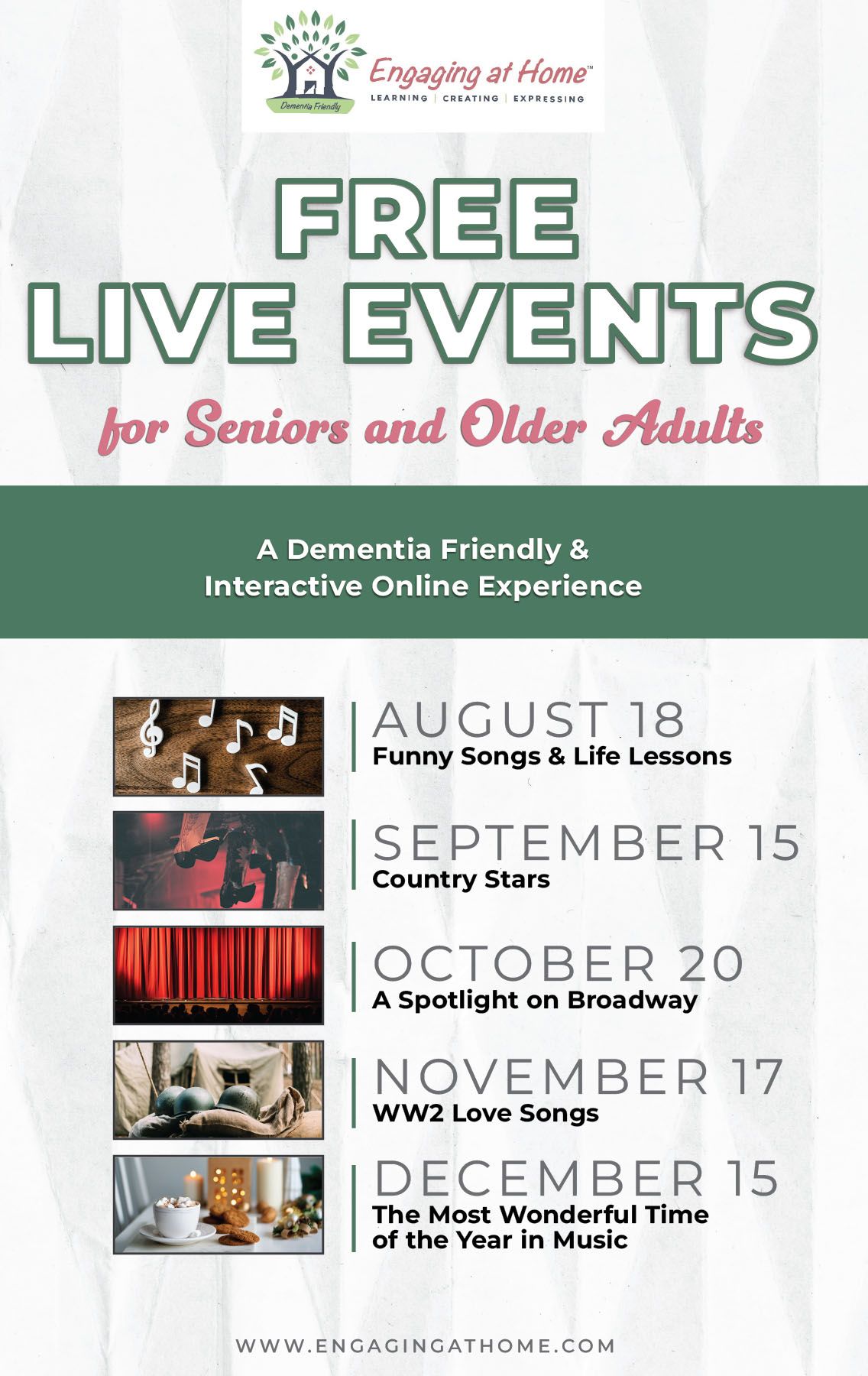
Caring for a loved one with cognitive impairment at home can be even more challenging than in a group setting. There are more people to see and things to do in a care center, not to mention a greater number of staff members to share the often-overwhelming responsibilities. But, while providing stimulation in a home setting can be challenging and stressful, engaging at home doesn't have to be an additional task.
Friendly, fun sessions that promote reflection and recall can be incorporated into daily schedules. We know your responsibilities may be stacked a mile high; setting aside even 20 minutes a day can help your loved one gain a feeling of accomplishment and self-worth. By implementing meaningful activities into your routine that highlight your loved one's strengths and interests, you can provide them with a greater sense of purpose, improve their mental and emotional well-being, and strengthen their social skills.
One easy way to engage your loved one is to say, "We've got 20 minutes; let's…" and suggest an activity. For instance, you can show your loved one a family photograph or a snapshot from their past and ask them about it, sit with them and read from their favorite book as they hold it, or ask them to sit with you and listen to music. You can also spark a discussion on a familiar or nostalgic topic, such as a family trip to a national park or a favorite song, and bring out old souvenirs or memorabilia to help draw them into the conversation. These activities are a gift that you can give to your loved one and to yourself.
Also, doing things with your loved one rather than for them can create an engaging experience as you go about daily tasks. For example, instead of serving your loved one by putting a plate in front of them, say, "Let's fill our plates together," and ask them to assist. Use verbal and social queues as you go about each task, making sure to allow for enough time in-between for your loved one to complete a step before moving ahead to the next. Explaining "why" is also important: If they ask why a particular dish was prepared, describe how certain foods—such as berries—help build brain health.
Asking your loved one to join you as you exercise is especially effective, too, even though those with dementia may often be resistant to it. Consider using virtual classes, as these may be better for your routine because they can be done from the comfort of home and on your schedule. Then, invite your loved one to experience this new activity with you by saying, "Let's do this movement together" or "I'm going to attend a short exercise class, will you join me?"
Incorporating new ways for shared activities into your routine is essential, even for post-verbal loved ones, because they can still get the most out of a shared activity, including feelings of togetherness and worth. As dementia progresses, your loved one's ability to communicate and perform may decline. But by giving them new, creative ways to express themselves, you can help ensure your loved one feels safe and relaxed with an opportunity to enhance their self-esteem and overall well-being.
Engaging at Home™ helps caregivers with ways to engage with loved ones who have cognitive impairment. Short, simple engagements are priceless and a gift to your loved one. We provide narrated videos, activities, seated wellness and fitness videos, and more. Contact us today for a free 14-day trial.
Engaging at Home™ provides an at-home engagement program bringing love, compassion, and validation to those affected by dementia and their families. Reach us via email at info@engagingathome.com or by calling (602) 418-5196.



